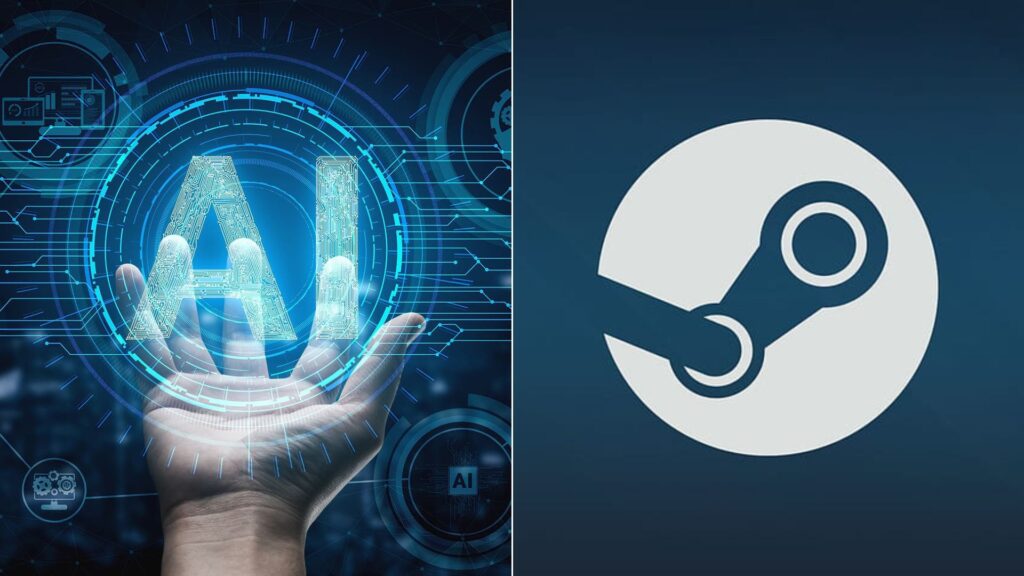As the gaming industry embraces the potential of artificial intelligence (AI), recent reports suggest that Valve, the company behind the popular online game platform Steam, may impose restrictions and take steps to ban the publication of video games that utilize AI-generated art assets. This development has sparked discussions and raised questions about the extent of the ban and its enforceability.
Valve’s Rejection of AI-Generated Games
Reddit posts by developers have shed light on Valve’s rejection of games featuring AI-generated assets. These developers shared their experiences of submitting games to Steam only to be rejected due to their utilization of AI-generated art. Valve’s rejection notices indicated that developers needed to prove ownership of the rights to the data set used to train the AI, as it relied on potentially copyrighted material.
Copyright and Legal Concerns
The issue of copyright ownership in AI training data sets has become a contentious topic.
- Getty Images, for instance, took legal action against Stable Diffusion, an AI image tool, for allegedly using its images without permission.
- Unity’s recent launch of AI tools has also sparked concerns about the data set used for training and potential copyright infringements.
Valve’s decision to ban AI-generated art may stem from the legal uncertainties surrounding AI and the company’s responsibility as a game publisher.
Enforcing the Ban and Identifying AI-Generated Art:
The enforceability of Valve’s ban on AI-generated games raises practical challenges. As AI technology continues to improve, identifying AI-generated art becomes increasingly difficult.
- Valve would likely need developers to disclose the tools used in game creation, but enforcing such a requirement may be complex and take a long time before devs can release their game on Steam.
- While Valve’s response suggests that games based on AI tools with legitimate data sets could meet acceptance criteria, the company’s approach to AI-generated content remains unclear.
PSA: Valve has been quietly banning newly submitted Steam games using AI-created art assets – if submitters can't prove they have rights for the assets used to train the algorithms: https://t.co/WhWpJpaFjl pic.twitter.com/5KhzJESYxk
— Simon Carless (@simoncarless) June 29, 2023
Varied Stance on AI-Generated Games
Valve’s purported ban on AI-generated games appears inconsistent, as some titles on Steam already incorporate AI-generated assets.
- For example, “This Girl Does Not Exist,” a game released last year, solely relies on AI-generated content.
- Valve’s lack of a standardized approach regarding AI-generated games raises confusion among developers.
This suggests that the company is cautious but undecided on the matter.
Implications for Developers and Future Developments
Valve’s stance on AI-generated games has implications for developers who utilize AI in their creative processes.
- The ban presents challenges for those relying on AI-generated art assets, as they must navigate copyright issues and prove ownership of training data sets.
- Therefore, the ongoing debate underscores the need for clearer guidelines and policies regarding AI-generated content on platforms like Steam.
https://www.youtube.com/shorts/lw6aXfB7aF4
Valve’s reported ban on AI-generated games on Steam has generated considerable discussion within the gaming community. The company’s requirement for developers to prove ownership of training data sets reflects concerns about copyright and legal ramifications.
However, the enforceability of such a ban and the identification of AI-generated art present significant challenges. As the industry grapples with these complexities, it remains to be seen how Valve will ultimately address AI-generated content.
For more content, stay with us here at Spiel Times. Make sure you subscribe to our push notifications and never miss an update. You can also follow us on Spiel Anime, Twitter, Instagram, and YouTube. Until next time!
